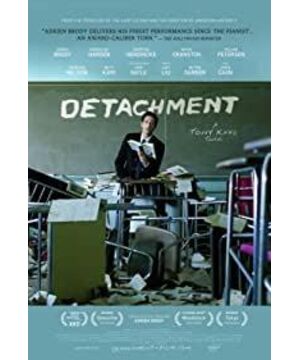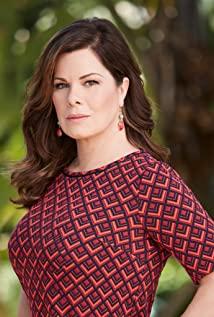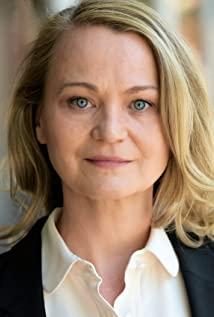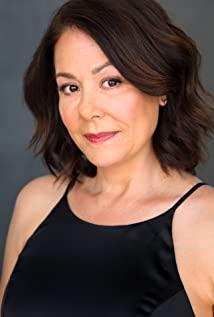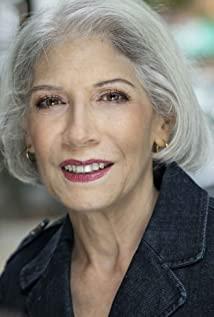"Transcendence" tells the story of a teacher who is reasonable but lacks a sense of responsibility, seemingly aloof but warm-hearted. But it's more of an "apocalyptic" horror movie: there's anger everywhere, and everyone's excruciating pain. The film wanders so frequently between memory and reality, between its rambling style and heavy propositions, that in the end I found it difficult to care about the fate of the characters in the film, but was forced into a kind of similarities to the protagonist. of detachment—or the realm of indifference. What is the difference between detachment and indifference? Substitute teacher Henry Bacht (Adrien Brody) can be described as the perfect interpretation of the spirit of "detachment". He has high brows, empty eyes, and an indifferent expression to face all the chaos and commotion around him. This kind of "peace", which is difficult to distinguish from his original intention, not only allowed him to defuse the provocation of several rude students at the beginning of his tenure, but also gradually won the favor of everyone - Mei Li, a fat girl who was ridiculed, inferior and closed in the class. Diess (played by Betty Kaye, the daughter of director Tony Kaye), treats him like a confidant. However, Henry has not always been so calm. When his grandfather living in a nursing home is not treated well, he will angrily and intimidate the care workers who are dereliction of duty, just like those arrogant parents who accuse teachers of negligence and make trouble at the school. One day, he even takes a young prostitute Erica (Sammy Gale), a young prostitute he doesn't know, home to take care of, and in just a few days, he teaches the filthy mean girl into a considerate kind the "daughter". From Jean-Pierre Melville's "Bob the Gambler" to Martin Scorsese's "Taxi Driver," "Saving the Young Prostitute" is undoubtedly one of the most efficient movie sequences, as it can quickly It creates a righteous and chivalrous image of the characters, and can also satisfy the subconscious paternal appeal of the audience, especially the male audience. Of course, the premise is that the "beauty" in "Heroes Save Beauty" is often weak and beautiful. As a teacher, Henry's attitude towards young prostitutes is no different from that of countless predecessors in film history. He accompanied Erica to dinner, shopping, medical examinations, and confided to her about his painful past. In my opinion, what he did was like opening a window of love and compassion for desperate children, but when they wanted to open the window wider, he pushed them open. "I can't be your family," he said when he called the social worker to take Erica away. It is true that everyone should be independent, but director Tony Kaye was busy showing all the warm details between Henry and Erica, and more importantly for the lost child, the words and deeds of how to be self-reliant were brushed off. In fact, Henry moved between schools as a substitute teacher. To a certain extent, he approached those souls thirsting for hope as a "substitute", to temporarily play the role of a self-confessed perfect person who had no basis to rely on. father role. In the film, Henry said to the class why he was leaving: "My duty is this. When the official teacher comes, I will leave." Too many people are waiting for the "official" mentor and lover in their lives. Or a confidant, and all that is expected are all kinds of passers-by who are afraid of responsibility. "Transcendence" is filled with a lot of thought-provoking monologues and surreal scenes, but it lacks touching dialogues. The audience has no chance to rely on their own wisdom to think about the viewpoints of the contradicting parties, and can only passively accept the director's ear to fill us with "" Heartfelt words". The whole film is like a long version of the MV, Brody's murky and melancholy narration sings everything, and the other pictures are just auxiliary materials to help us remember the lyrics. I am willing to believe that the plight of public education in reality is just as stated in the film, and I am willing to sympathize with the teachers who are struggling under the multiple bombardment of student performance, parental pressure, and classroom order, but agreeing with the theme of a film does not mean appreciating it the way it is expressed. The constantly interspersed chalk animations, intentionally or unintentionally out of focus, and overly dramatic turns destroy the documentary atmosphere created by the director's intentions, turning this film with an excellent entry point into a sentimental soap opera. Similar to director Tony Kaye's debut feature "American X-Files", "Transcendence" extremely tests the acting skills of the main and supporting characters. Considering that the script has very few plots to play, their existence itself has become a symbolist group portrait. Adrienne Brody puts on one of the best one-man shows since The Pianist, and his intense portrayal gives Henry, the good-hearted yet feigned aloof character, a captivating melancholy. Marcia Gay Harden is pitiful and dignified as the battered principal, and James Caan's cynical and articulate counselor lends a precious touch to the gloomy film humour; and Tim Blake Nelson's role as a teacher numbed by an overwhelmed job and an apathetic family is equally memorable. Compared with other films of the same genre, Detachment has neither the depth of The Class (2008) nor the depth of Half Nelson (Half Nelson, 2008). 2006) of the simplicity. It is like an ambiguous poem, full of "powerlessness", "frustration" and "heartache", and the camera mostly focuses on sadness, shock and despair, and refuses to logically interpret the source of these emotions. Why is this high school's enrollment so poor? Is it a common phenomenon or a regional feature? Why do teachers here suffer so much but don't want to find another job? Are they concerned about the healthy growth of students, or test scores? Do students need teachers who can communicate with them better, parents who are more understanding, or do they need more diverse assessment mechanisms? Or can they only hope that one day their own sacrifice can move a sleeping Bole like Henry to find himself under his guidance? Avoidance of questions like these turns the happy ending at the end of the film into condescending handouts, and shouting into moaning. Screenwriter Carl Lund, a former public school teacher, no doubt intended to portray his teachers as a group of venerable martyrs in Detachment: They were fighting for a long-dead ideal, swept away by those who didn't care about their own future. students tortured. In the last scene of the film, in the dilapidated and empty classroom, the sheets of paper are flying, the desks and chairs are scattered, Henry sits with a book and slowly recites "The Fall of the House of Ershe", like a Jesus without a cross. In this situation, my heart is not filled with admiration, but doubt: Are the students scared away too? That's how Detachment feels to me - it portrays the problem of public education as an out-of-the-box, unreasonable beast, enough to scare off any rational attempt to explore and solve, and in the end we can only bury our heads in the sand , "detached" waiting for the inescapable doom.
View more about Detachment reviews


